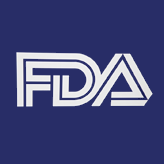FDA Approves New Targeted Agent for Acute Myeloid Leukemia
The FDA has approved enasidenib (Idhifa) for the treatment of relapsed or refractory IDH2-mutant acute myeloid leukemia.
The indication is for adult patients with the IDH2 mutation

The US Food and Drug Administration (FDA) has approved enasidenib (Idhifa) for the treatment of relapsed or refractory acute myeloid leukemia (AML) in adult patients with an isocitrate dehydrogenase-2 (IDH2) mutation detected by the RealTime IDH2 Assay, which was approved as a companion diagnostic. This is the first FDA approval for IDH2-mutant AML.
Over 21,000 people will be diagnosed with AML in the United States this year, according to estimates from the American Cancer Society, and 10,590 AML patients will die of the disease.
“Idhifa is a targeted therapy that fills an unmet need for patients with relapsed or refractory AML who have an IDH2 mutation,” said Richard Pazdur, MD, acting director of the Office of Hematology and Oncology Products in the FDA’s Center for Drug Evaluation and Research, in a press release. “The use of Idhifa was associated with a complete remission in some patients and a reduction in the need for both red cell and platelet transfusions.”
The approval of enasidenib was based on a phase I/II, open-label, single-arm trial (Study AG221-C-001) that included 199 patients with relapsed or refractory AML with an IDH2 mutation. Patients received a daily oral dose of 100-mg enasidenib.
After a median follow-up of 6.6 months, 19% of patients achieved a complete response, with an 8.2-month median duration of response; and 4% achieved a complete response with partial hematologic recovery, with a 9.6-month median duration of response. Median time to first response was 1.9 months (0.5–7.5). Among 157 patients requiring transfusions at the start of trial, 34% no longer required transfusions (for at least a 56-day period) after treatment with enasidenib.
Common adverse events from enasidenib observed on trial included decreased appetite, diarrhea, increased levels of bilirubin, nausea, and vomiting.
Differentiation syndrome, which can be fatal, occurred in 14% of patients, and patients should be treated with corticosteroids at first suspicion of symptoms. Signs of differentiation syndrome include acute respiratory distress, dyspnea, fever, multi-organ dysfunction involving the kidneys and liver, peripheral edema, pleural or pericardial effusions, radiographic pulmonary infiltrates, and rapid weight gain.
The recommended daily dose of enasidenib is 100 mg orally until disease progression or unacceptable toxicity. Women who are either pregnant or breastfeeding should not receive enasidenib as it may cause harm to a fetus or newborn baby.